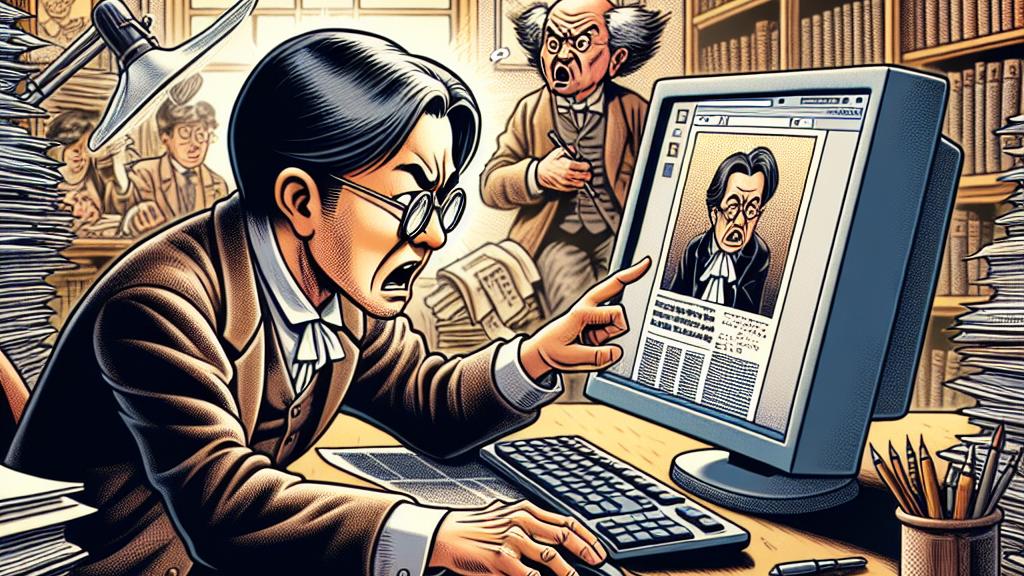University Professor Reacts to Misleading Article Summary
Overview
- A Japanese professor expresses his outrage regarding a misleading article that misrepresented his work.
- The publication falsely claimed his book was an interview with him, without his consent.
- He advocates for greater accountability in journalism to prevent misinformation.

Misinformation in Media
In Japan, a surprising controversy emerged when President Online published an article that prominently misrepresented the work of Professor Kawasaki. Instead of offering a straightforward summary of his book, the article scandalously presented itself as a direct interview with him—something that was completely unfounded! Imagine dedicating months or even years to write a book, pouring your thoughts and research into it, only to see it mischaracterized in a major publication. Professor Kawasaki didn't hesitate to voice his indignation on social media, drawing attention to how this portrayal completely disregarded his authentic voice and intent. What's alarming is how often such misunderstandings can slip through the cracks, leading us to wonder: Who is responsible for ensuring accurate representation in journalism?
The Impact on Authors
This situation is not just a minor grievance; it's emblematic of a far-reaching issue that affects authors everywhere. When their work is distorted, it can lead to widespread misunderstandings among readers, prompting them to form misguided opinions about the author's real intentions. Professor Kawasaki brought up an essential point: without social media, where he could set the record straight, he might have been forced to accept this misrepresentation quietly. For example, he recalled a friend who lost book sales and credibility after a similar incident with a major magazine. The ability to clarify and communicate directly with audiences is crucial, especially in an age where any misconception—even unintentional—can lead to significant reputational damage.
A Call for Change in Journalism
Professor Kawasaki's experience serves as a powerful call to action for reform in journalistic standards. He emphasized the need for transparency and the critical importance of accurate representation of an author's work. In today’s fast-paced digital world, where misinformation can spread like wildfire, the responsibility falls on journalists to take their roles seriously. Each piece of writing they publish has the potential to shape public perception. Thus, the consequences of inaccuracies can be profound and damaging! As consumers of media, we too hold a responsibility to scrutinize the information we engage with. By questioning the narratives presented to us, and demanding accuracy, we contribute to a healthier media environment. Ultimately, Professor Kawasaki's story highlights both individual accountability and a collective duty to uphold the integrity and truthfulness of information shared in society.

Loading...